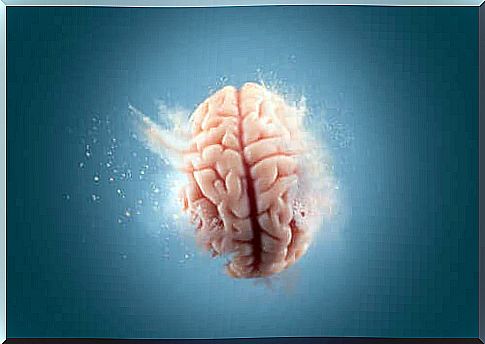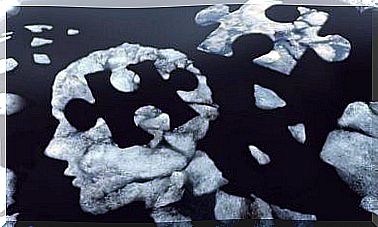Cocaine’s Effects On The Brain: Why Are They So Devastating?

The effects of cocaine on the brain are devastating. This is the second most used drug in the world and has been a health problem since the 80’s.
This substance, which is a derivative of the coca leaf, leads to feelings of euphoria, energy and mental alertness. It also reduces appetite and the need to sleep.
In addition to these short-term effects, however, the use of this drug has long-term consequences, such as emotional and behavioral disorders.
Continue reading to learn about the main effects of cocaine on the brain on an anatomical, metabolic and functional level.

Anatomical and metabolic effects
This substance affects the noradrenergic and dopaminergic systems in the brain.
More specifically, it promotes the release of norepinephrine while inhibiting the reuptake of serotonin, dopamine and norepinephrine in the synapses.
Thus, the availability of these neurotransmitters is significantly higher in the space between the communication of two nerve cells, also called the synaptic cleft.
This effect leads to a series of long-term changes in the brain.
In autopsies, researchers have observed that the brains of cocaine users have lower levels of dopamine in the striatum, or streaked body, in addition to lower density of monoamines.
Furthermore, there is an increase in microglia and macrophages, which means that cocaine abuse is linked to the loss of dopaminergic terminals as well as whole nerve cells.
This cell damage creates reward pathways, which include the dopaminergic pathway. It changes its function and produces a compulsive consumption of cocaine.
At the same time, the decreased presence of natural dopamine – a hypodopaminergic condition – is the cause of abstinence, depression and lust.
Researchers have also absorbed the fact that the consumption of cocaine and other substances increases the presence of free radicals and oxidative stress. These cells may be necessary, but they also cause aging and cell damage.
Furthermore, they interfere with the function of the blood-brain barrier. It is vital for protecting the brain from harmful external agents and for maintaining homeostasis.
Cocaine use is also directly linked to effects on the cerebral vasculature, which makes the risk of stroke imminent. There is also an increased risk of tumor necrosis.

Cocaine’s functional effects on the brain
The changes and damage mentioned above have a series of consequences for the neuropsychological function of the user. In general, cocaine addicts perform poorly in neuropsychological evaluations.
These effects are manifested in the ability to pay attention, memory, inhibition of responses and executive functions.
More specifically, cocaine affects the processes of selective and sustained attention, working memory, visual memory and learning capacity. These effects become more apparent in abstinence.
Regarding the executive functions, cocaine users have a harder time inhibiting responses. They thus become more impulsive and less skilled at making decisions.
This is also linked to less flexibility in the face of change and a poorer ability to process mistakes and handle incidents.
In short, the effects of cocaine on the brain are severe, and it can be one of the most addictive drugs.
In addition to the effects described here, there are many emotional, behavioral and social consequences that will affect the user’s life.








